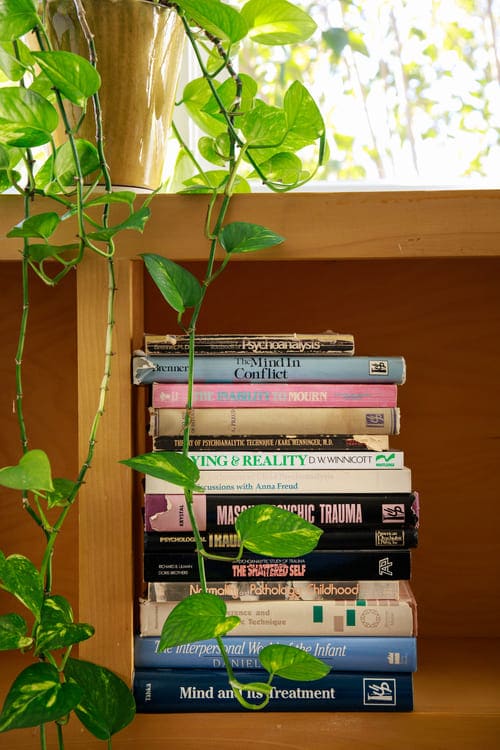You don’t have to lose yourself to be connected to others.
Therapy offers space to explore your inner world—and find your way forward.
When Relationships Leave You Feeling Lost, Hurt, or Unsure
Even in close relationships, it’s easy to feel stuck—caught in painful patterns, questioning compatibility, or overwhelmed by emotional highs and lows. You might feel unsure what’s being asked of you—or how much more you can give.
Clarity begins when you slow down and listen to what your experience is really telling you.
In therapy, we’ll explore the emotional dynamics beneath the surface and the deeper patterns shaping your relationships. With time, clarity and self-trust can grow, making space for more honest connection—with others and with yourself.


Build Relationships That Feel Good
Imagine feeling more at ease in your relationships—able to express yourself freely, trust your own needs, and feel deeply connected without the constant second-guessing.
Therapy helps you understand the unconscious patterns shaping your relationships—so you can stop repeating what isn’t working, set boundaries that feel sustainable, and build deeper, more fulfilling connections that feel honest, freeing, and true to who you are.
Therapy is a Space to Explore, Reflect, and Grow
Hi, I’m Dr. Elizabeth Stuart—you can call me Elizabeth. I’m a psychoanalyst and psychiatrist, based in Oakland, offering insightful, depth-oriented therapy for those navigating complex relationships—whether romantic, familial, professional, or friendships.
I work with people in Oakland, CA who want to:
- Navigate the emotional weight of parenting and strengthen your bond with your child.
- Build trust and intimacy in romantic relationships.
- Set and hold boundaries in complex family dynamics.
- Manage workplace relationships, from authority figures to coworkers.
- Cope with grief, separation, or major life transitions.

If this resonates, let’s talk.
Therapy can help you explore what’s beneath your relationship struggles and move toward more meaningful connections.
Schedule a consultation or reach out with any questions.

Parenting at Every Stage: Supporting the Next Generation
Parenting can be both deeply rewarding and profoundly challenging. Whether you’re caring for a newborn, guiding a strong-willed toddler, or supporting a teenager’s independence, the emotional weight can feel overwhelming.
It’s normal to feel:
- Like no matter how much you give, it never feels like enough.
- Pulled in every direction, with no room to breathe.
- Unsure of how to handle big emotions—your child’s or your own.
- Afraid of making mistakes that could impact your child in ways you can’t predict.
Therapy offers a space to reflect, process, and reconnect with yourself as a parent—not just to help your child, but to help you navigate this journey with more clarity and self-compassion.
Relationships in Transition: From Marriage to Separation
Relationships evolve—sometimes in ways we never expected. Whether you’re building a new partnership, facing struggles in an existing one, or grieving the end of a relationship, these moments can bring up uncertainty, fear, or old wounds.
Therapy helps you:
- Strengthen connection and intimacy.
- Understand recurring patterns and conflicts.
- Explore fears of commitment, independence, or change.
- Heal from infidelity, separation, or divorce.
There’s no perfect script for relationships. Therapy offers a space to explore what you need, how you feel, and what’s possible—whether that means repairing, redefining, or letting go.


Navigating Family Dynamics: Boundaries, Connection, and Growth
Maybe you long for closeness but feel pulled back by something unspoken. Maybe family roles that once made sense no longer feel like they fit—but stepping outside of them feels complicated, too.
Therapy offers a space to make sense of these complexities, helping you:
- Understand how family patterns and expectations have shaped your relationships.
- Set boundaries that feel clear and sustainable—without guilt or fear.
- Navigate tensions between obligation, independence, and connection.
- Move beyond old dynamics so you can relate in ways that feel true to you.
Family connections are layered, but they don’t have to feel like a script you’re stuck repeating. Therapy helps you step into a way of relating that honors both your history and your growth.
Managing Workplace Relationships: Authority, Boundaries, and Expectations
Work relationships can be some of the most emotionally charged in our lives. Whether it’s a difficult boss, feeling unseen on a team, or struggling to assert yourself, these dynamics often tap into something deeper—early experiences with authority, belonging, and self-worth.
Maybe you hesitate before speaking up, worried about how you’ll be perceived. Or you take on extra work to avoid seeming difficult. Perhaps even well-meaning feedback feels like criticism that stays with you.
Work is rarely just about work.
It reflects how we see ourselves, how we respond to power, and what we expect from others. Therapy offers a space to untangle these patterns, so you can engage more freely—with confidence and clarity.


Coping With Loss, Illness, or Major Change
Loss shifts everything—your sense of self, your relationships, the way you move through the world. Whether you’re grieving a loved one, navigating illness, or adjusting to a major life change, the emotional weight can be immense.
Grief looks different for everyone—there’s no right way through it.
Therapy offers space to grieve at your own pace and to stay close to what feels important. Together, we can make room for mourning, memory, and meaning—and begin to imagine what healing might look like, in your time.
How Can I Support You?
I know how confusing and painful it can be to feel like something isn’t working, but not know why—or how to change it.
In therapy, we’ll explore not just your relationships, but how they feel from the inside—what gets in the way of feeling understood, what fears or expectations shape the way you connect. Because relationships aren’t just something we talk about but something we experience, I invite you to notice what unfolds between us. As we explore these patterns in real time, you can begin to understand and shift them in a way that feels real and lasting
If this resonates, let’s talk.

Frequently Asked Questions
Even though relationships involve two people, the way we show up in them is shaped by our own histories, unconscious patterns, and internal conflicts. Therapy offers a space to explore these dynamics—what draws you to certain relationships, what feels familiar or triggering, and how past experiences might be influencing your present. Through this process, you can develop a deeper understanding of yourself, which can lead to shifts in how you engage with others.
If you find yourself in the same kinds of frustrating, painful, or unfulfilling relationships, it may not be a coincidence. Often, we are unconsciously drawn to familiar dynamics, even when they don’t serve us. Therapy helps uncover the deeper reasons behind these patterns—whether they stem from early attachment experiences, unconscious beliefs about love and worth, or unspoken fears—so that you can engage in relationships with greater awareness and choice.
Yes. If intimacy feels overwhelming, uncomfortable, or out of reach, there may be deeper fears—of vulnerability, rejection, or losing yourself in the relationship. These fears are often rooted in past relational experiences, even if they don’t seem obvious at first. In therapy, we explore where these difficulties come from and how they shape your emotional world, so you can develop a more fulfilling and connected experience of closeness.
If you find yourself repeatedly drawn to people who can’t fully show up for you, therapy can help explore why. Sometimes, what feels like attraction is actually a familiar emotional script playing out. Unpacking these patterns—what feels “normal” versus what is actually nourishing—can help you recognize different possibilities for connection and, over time, shift toward relationships that feel more reciprocal and sustaining.
The way we experience relationships today is often shaped by our earliest relationships—how we learned to seek love, how we adapted to get our needs met, and what we came to expect from others. These early experiences aren’t just memories; they shape the way we unconsciously navigate closeness, conflict, and connection. Therapy provides a space to make these patterns more visible so that you can relate in ways that feel more authentic to who you are now, rather than who you had to be in the past.
Therapy isn’t about giving you answers—it’s about helping you listen more deeply to yourself. If you’re questioning a relationship, we’ll explore what’s at stake for you, what fears or longings are involved, and what deeper patterns might be at play. Rather than pushing you toward a decision, therapy helps you understand what feels right for you from a place of clarity and self-trust.
